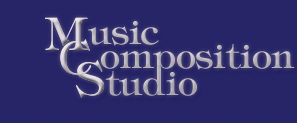How to read music notation
It's wonderful that you are interested in how to read music notation.
Reading music notation is really fun, and it's an incredibly rewarding skill. It challenges you on all levels: physical, mental, emotional, and spiritual.
To learn how to read music, it's important to go slowly. Remeber: "The turtle wins the race!" But the cool thing is that, the slower you go and the more thoroughly you proceed, the faster you actually progress.
You can train yourself to learn a song or a piece by heart. But when you've thoroughly understood the written language of the piece, it's notation, then you can generally assume that you can sight-read (or do a good job of reading through) pieces of the same level.
I used to be a really bad reader of music notation. I learned everything by heart. Even in college music school, that's what I did. I graduated and remained a poor reader of music notation.
Since graduating with my Master's Degree in Music Composition, I've methodically improved my reading of music notation, and so can you!
I have a question for you: Can you read and write English? Yes, you can! Of course you can, this page is in English! Ha!
But see how I'm assuming that you can read and write?
That's the critical mistake musicians make. Musical literacy means being able to read and write. If you can write, then you can read much better.
It may be confusing, but I was even able to write music well before I really started being able to read music notation well. I concentrated on graphically displaying the music that I made up in my musical imagination. That, however, did not give me what I needed to read music and play it, for example, at the piano.
To read piano music, I needed to a) see it and understand it b) hear it in my sonic imagination c) translate the visual input and sonic imagination into instructions for my fingers, body, and breathing.
The same steps apply to any instrument, including voice. Some people mechanize the process, and they decide to become typewriters at the piano...or they simply mechanistically read their parts.
I believe that happens when the sonic imagination is devalued, and when the magic of interpretation is ignored.
I've codified the steps I went through to be able to read music notation in my eBook "How to Write Your Songs Down." The rudimentary system I present in the eBook can be used to help any musician practice better on their instrument...and, happily, the eBook places emphasis on writing...which everybody needs to do when they wish to become literate in a language...so why not become literate in music?
Click here for more information on learning how to write music.
Sincerely,
Dainis W. Michel
March 9, 2007
